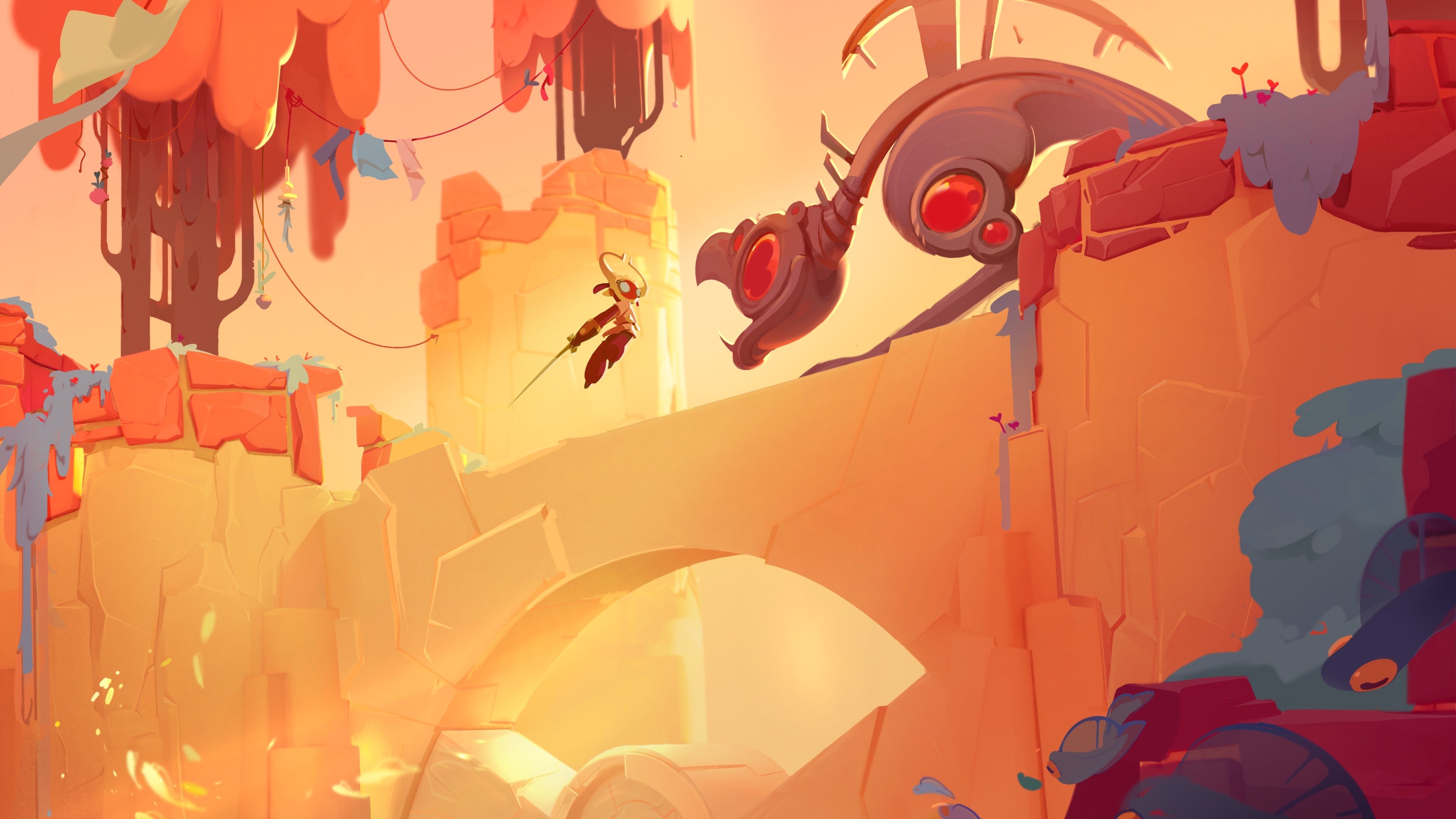This article is part of Run, Die, Repeat, Polygon’s week-long series exploring roguelikes.
The flow of time lies at the heart of Panta Rhei, the debut project from Reignite Games and one of the summer’s underrated indie gems. It’s a roguelike that has players taking control of Phi, a young Guardian of Time, after their realm is threatened by proper noun Chaos. They wield a sword, sure, but their ability to manipulate the world around them by pausing and rewinding time is their strongest weapon.
Interestingly, the levels in Panta Rhei are very static, or at least the ones I played through during my first few hours with the game. Instead of Phi’s path being randomized whenever they set off on a fresh run, they tread the same levels. It’s an interesting departure from most roguelikes, in which you often don’t know what rooms you’re about to step into, and helped me better track my progress each run. However, I could see how fighting through the same level layouts every run could get a tad dull over time, even though there are a few off-the-beaten-paths to explore.
Panta Rhei’s combat is so engaging, however, that the moment-to-moment gameplay never bores. Phi has light and heavy attacks, and combos that mix the two. All well and good there. What sets Panta Rhei apart is how rewinding Phi through time adds an exciting layer to combat. I really like using the whirlwind combo, which is two light attacks followed up by a heavy attack in which Phi lands multiple hits on foes. Once the animation is done, I can rewind and watch the same attacks play out in reverse for additional damage. This is also a nifty way to get out of danger, by rewinding Phi enough that they’re no longer on top of any enemy.
Rewinding attacks isn’t just a fun little trick: it’s necessary to damage shielded enemies. An aqua blue barrier encases some foes, and it can only be broken by attacking them as Phi rewinds. Some of the tougher enemies will become shielded midway through encounters, ensuring Panta Rhei keeps ya on your toes.
Phi also has the power to rewind and pause time around certain objects. This is necessary in some levels (like reconstructing a broken bridge), and very helpful during certain combat encounters. Traps are often the bane of my existence in roguelikes, but in Panta Rhei, they’re my allies. I take so much joy in luring enemies near traps, then rewinding time and using them against unsuspecting foes.
What I appreciate most about Panta Rhei is how approachable it is. Phi is healed after clearing an encounter, meaning managing HP isn’t as stressful as in many other roguelikes. As long as I keep the damage to a minimum, Phi will often be brought back up at full health after the encounter ends. Phi can also be revived during runs by using lifetime capsules, and runs start with two available. An additional capsule can be added via investing in Phi’s skill tree, meaning after just a couple hours of playtime, I’m able to enjoy runs with three revives in my pocket. Saving up my coins over the course of a run can even let me replenish them, if a merchant has one in stock.
Panta Rhei feels like a roguelike for people who are put off by the typical difficulty of the genre. After just a few runs, Phi feels like a nimble powerhouse — one who thankfully won’t be derailed by an early or unexpected death.
Panta Rhei is out now on Windows PC. The game was reviewed on PC using a prerelease download code provided by Reignite Games. Valnet Inc. has affiliate partnerships. These do not influence editorial content, though Valnet Inc. may earn commissions for products purchased via affiliate links. You can find additional information about Polygon’s ethics policy here.



